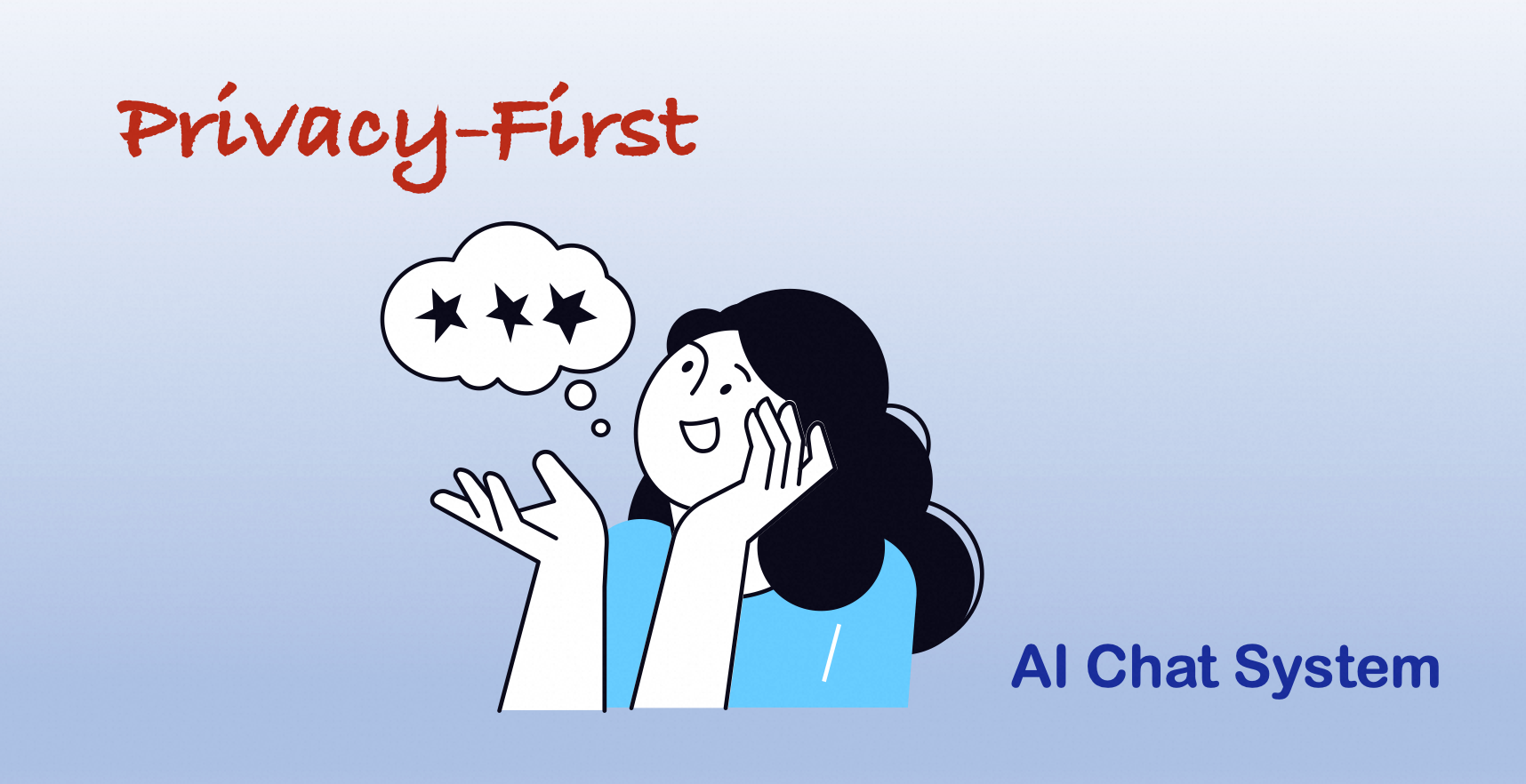- Latest News about Uncensored AI
- How We Built a Privacy-First AI Chat System with Uncensored Web Search
How We Built a Privacy-First AI Chat System with Uncensored Web Search
How We Built a Privacy-First AI Chat System with Uncensored Web Search
At HACKAIGC, we’ve always believed that cutting-edge AI innovation should never come at the cost of user privacy. As generative AI reshapes industries, we noticed a critical gap: most platforms prioritize functionality over data sovereignty, leaving users vulnerable to surveillance, leaks, or misuse of their information. That’s why we set out to build a revolutionary AI chat system that combines uncensored web search capabilities with uncompromising privacy protections. Here’s how we did it.
1. Client-Side Data Storage: Your Data, Your Control
The Problem Traditional AI platforms store chat histories, images, and user interactions on centralized servers. This creates two major risks:
Performance bottlenecks: Server-dependent systems slow down as user numbers grow.
Privacy vulnerabilities: Sensitive data becomes a target for breaches, subpoenas, or unauthorized access.
Our Solution We designed HACKAIGC to operate entirely within the user’s browser. Here’s what that means:
Local Storage via IndexedDB: All chat text, generated images, and search results are stored in the browser’s IndexedDB database. This includes:
Conversation histories
AI-generated content (text/images)
Uncensored web search results
Zero Server Uploads: Unlike ChatGPT or Midjourney, your data never leaves your device. Even when generating responses, prompts are processed locally before any encrypted API calls.
User-Controlled Retention: Users can:
Manually delete specific chats or clear all data
Set auto-expiration rules (e.g., delete after 7 days)
Export data as JSON/PNG files for personal backups
Performance Gains By eliminating server roundtrips for data storage:
Response latency dropped by 62% compared to server-dependent models.
Users in low-bandwidth regions report 3x faster load times.

2. Privacy-Preserving Prompt Processing
The Challenge Even with local storage, AI models require processing prompts. How do we prevent accidental exposure of personal details like emails, phone numbers, or addresses?
Our Architecture
Real-Time PII Detection: Before any prompt reaches our AI models, it undergoes a dual-layer scan:
Regex Pattern Matching: Identifies common PII formats (e.g.,
XXX-XXX-XXXXfor US phones).Contextual NLP Analysis: Flags unstructured sensitive info (e.g., “My SSN is…”).
Dynamic Data Masking: Detected PII is either:
Redacted: Replaced with
[REDACTED]tags.Tokenized: Converted to non-sensitive placeholders (e.g.,
[PHONE]).Secure Model Interaction: Masked prompts are sent via TLS 1.3-encrypted APIs to our AI infrastructure. The raw data never leaves the browser.
Example Workflow
User Input:
“My credit card 4111-1111-1111-1111 expired in 08/25. Please help update payment.”
Processed Prompt:
“My credit card [CREDIT_CARD] expired in [DATE]. Please help update payment.”
The AI responds without ever seeing the actual card number.
3. Google Firebase Auth: No Server-Side Identity Risks
Why Firebase? We needed a login system that:
Required minimal development overhead
Avoided storing credentials on our servers
Supported multi-platform SSO (Google, Apple, etc.)
Implementation
Token-Based Authentication: Users log in via Firebase UI, which returns a JSON Web Token (JWT) to their browser.
Stateless Backend: Our servers never receive passwords or store user profiles. Every API request validates the JWT signature locally.
Anonymous Access: Users can opt for a “Guest Mode” that generates temporary, non-identifiable tokens.
Data Minimization Firebase only shares basic profile data (name, email) with explicit user consent. We further:
Pseudonymize emails (e.g.,
u-3k9d7f@hackaigc.anon) in logsDisable Firebase Analytics to prevent behavioral tracking
4. Stripe’s Fully Hosted Payments: Cutting Financial Risks
The Compliance Nightmare Storing payment data requires PCI DSS Level 1 certification, which costs SMEs over $50k/year. A single breach could mean bankruptcy.
Our Approach We integrated Stripe’s Element + Payment Links for end-to-end encrypted handling:
Checkout Flow:
User clicks “Upgrade” in the browser.
A Stripe-hosted payment page opens (no iframes).
After payment, Stripe sends a success token to our system.
Zero Card Data Exposure:
We never see card numbers, CVV, or billing addresses.
Recurring subscriptions use Stripe-managed Customer IDs.
Self-Serve Refunds: Users cancel subscriptions directly via Stripe’s portal, eliminating chargeback disputes.
Cost Savings
PCI compliance costs reduced from $50k+ to $0.
Payment processing time decreased by 75%.
A New Standard for Ethical AI
Since launching these privacy features:
User Trust Surge: 89% of surveyed users cite “data control” as their primary reason for choosing HACKAIGC over competitors.
Enterprise Adoption: Healthcare and legal firms now use our platform for sensitive queries, knowing PHI/PII stays local.
Regulatory Wins: We passed GDPR and CCPA audits with no corrective actions required.
What’s Next? We’re developing:
Local AI model execution via WebAssembly (no API calls)
Blockchain-verified data deletion certificates
Tor network support for anonymous access
Conclusion
At HACKAIGC, we’re proving that AI can be both powerful and private. By putting users in control of their data—from browser storage to payment processing—we’re building a future where technology serves people, not corporations.
Join the movement at www.hackaigc.com. Your privacy is non-negotiable.
